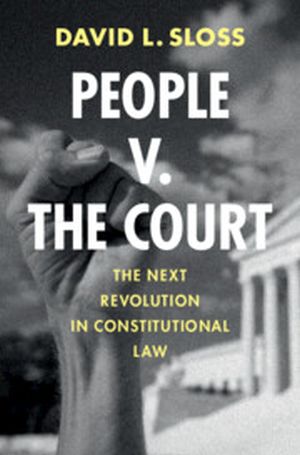
The Constitution divides power between the government and We the People. It grants We the People an affirmative, collective right to exercise control over the government through our elected representatives. The Supreme Court has abused its power of judicial review and subverted popular control of the government. The Court's doctrine divides constitutional law into rights issues and structural issues. Structural constitutional doctrine ignores the Constitution's division of power between the government and We the People. The Court's rights doctrines fail to recognize that the Constitution grants the People an affirmative, collective right to exercise control over our government.
People v. The Court presents an indictment of the Supreme Court's constitutional doctrine. It also provides a set of proposals for revolutionary changes in the practice of judicial review that are designed to enable We the People to reclaim our rightful place as sovereigns in a democratic, constitutional order.